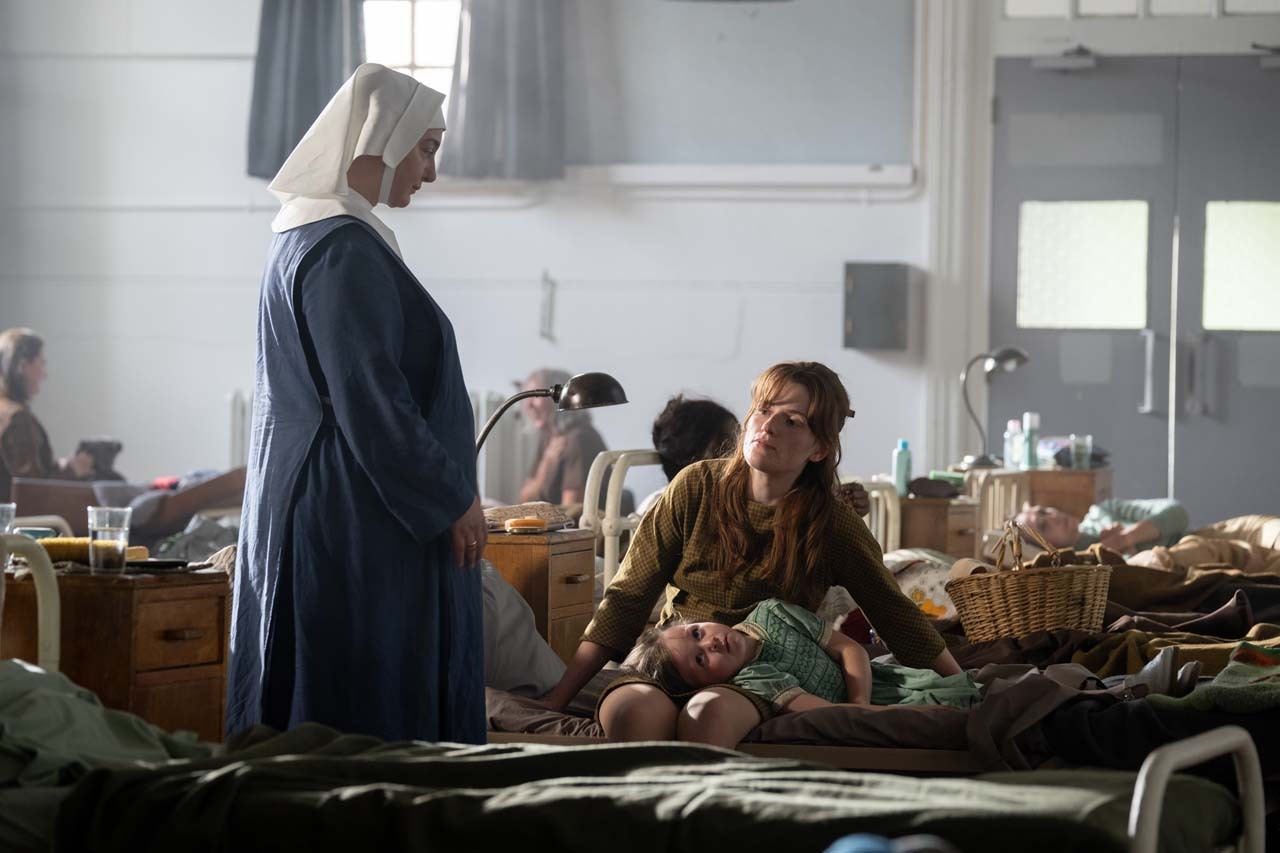
Any time the status quo is disrupted, it can take some time to adjust, even if the change is greatly beneficial. We have seen this in my own practice at Henry Ford West Bloomfield Hospital, as our midwifery practice has expanded from a team of 10 midwives all the way up to 17! It’s an amazing opportunity to have our practice expanding at a time when other health systems in our area are choosing to reduce or cut out midwifery services, but of course it takes some adjustment to the way things have been done for so long. Our friends at Nonnatus House are no exception to the rule. Sister Veronica has joined the ranks at Nonnatus, and from her inability to accept a bicycle as a mode of transport to the marmalade fiasco last week, she has for sure ruffled a few feathers. She does, however, have a passion for her work as a health visitor and truly wants to help the families in Poplar.
This week, Sister Veronica meets the Talbot family, just celebrating their wedding. Sandy was previously widowed, and from the outside, her new marriage seemed like a fresh start. Her new husband, Joe, seemed happy to step into the role of stepfather to Sandy’s two children, but Joe’s seemingly dominating personality had me wary of him from the start.
Soon, we learned the horrors of what Sandy’s new marriage was like with Joe. When Sister Veronica visits the next day to discuss getting Sandy’s son up to date on his vaccines and well child visits, we right away see how dazed Sandy is. I suspected domestic violence immediately, but when I saw the blood on Sandy’s nightgown, I knew. Sandy’s new husband raped her.
Despite how far we have come from 1968 to now, I still think there are likely some people who don’t understand the idea of spousal rape. Unfortunately, back in 1968 Poplar, there wasn’t even a law on the books to punish someone for rape if they were married to that person. When Sister Veronica took Sandy to the police station to report the rape, and they were told that there was nothing they could do, I felt rage smoldering inside me. I was so grateful to see that rage also burning within Sister Veronica. When she yelled at the police officer, I was so grateful that Sandy had Sister Veronica as her advocate.
Reporting sexual assault and rape is often traumatizing for survivors. You have to recount such specific details of the incident to the police officer, and in many cases, the police officer may be a man. Even today, women often run the risk of not being believed, being told there is not enough evidence to press charges, or they might feel dismissed when the assailant is someone they are in a relationship with. I appreciated that Sister Veronica accompanied Sandy to the police station, taking steps to protect Sandy from embarrassment by writing down the word rape instead of saying it out loud. She was Sandy’s voice when Sandy didn’t feel strong enough to talk. Through that never-faltering display of support and anger that Sandy’s rape was not considered a crime, Sandy was able to see that she was right to be angry. She was right to want to leave Joe. She deserved better.
As midwives and nurses, our patients often feel comfortable sharing personal information with us that they may not have revealed to other health care providers. As a midwife, it can be hard to know what to do with that information. Some people aren’t ready to move forward with pressing charges or leaving an abusive partner. Sometimes they just needed to tell someone. They might just need to feel validated that what they experienced was wrong. Sometimes they need someone to tell them that this wasn’t okay. That they deserve something better. They might just need to know that someone believes them.
If someone is wanting help to leave an abusive situation, it’s also important to know what resources are available in your area to help. If you work for a health system like I do, you can always reach out to the social work team at the hospital for additional resources or support. We don’t have to know how to fix things for our patients, but we do need to guide them in the right direction if they are wanting help. We can’t make people accept help when they aren’t ready, but we can build a trusting relationship with them. We can believe them. Like Sister Veronica, we can show our patients that we are always in their corner.